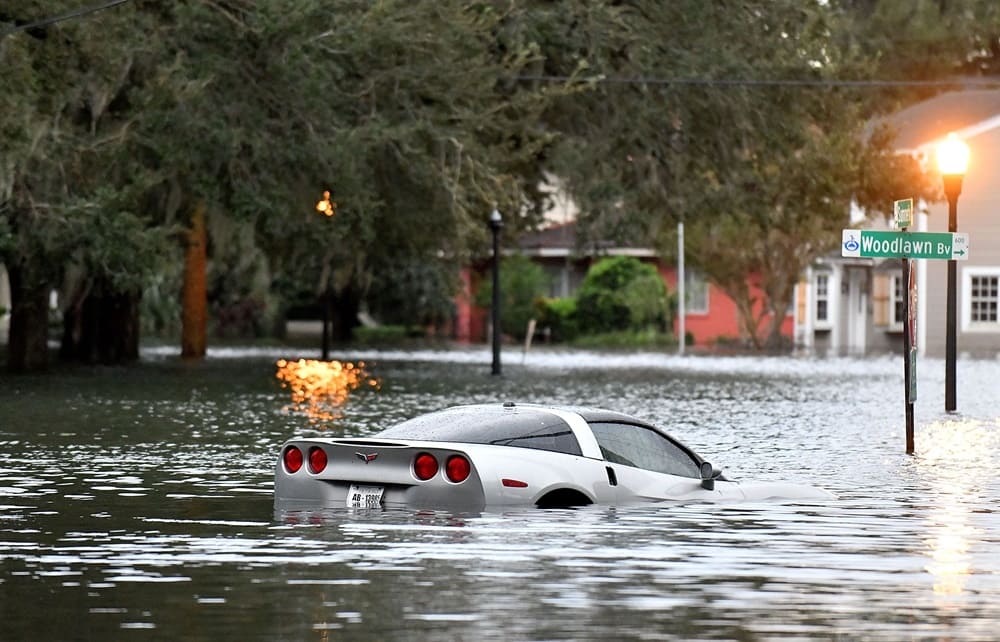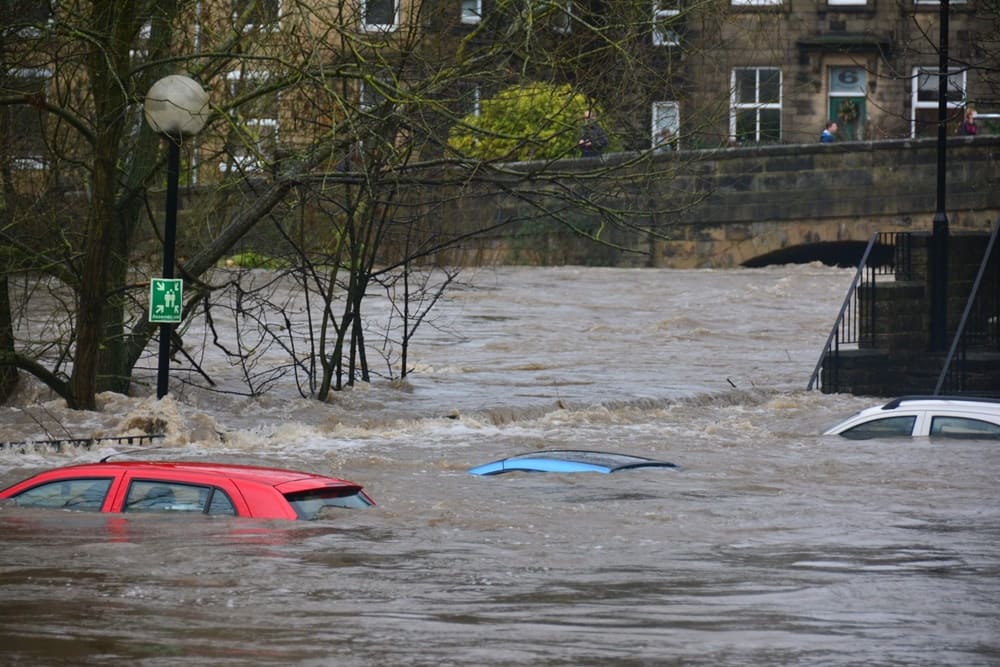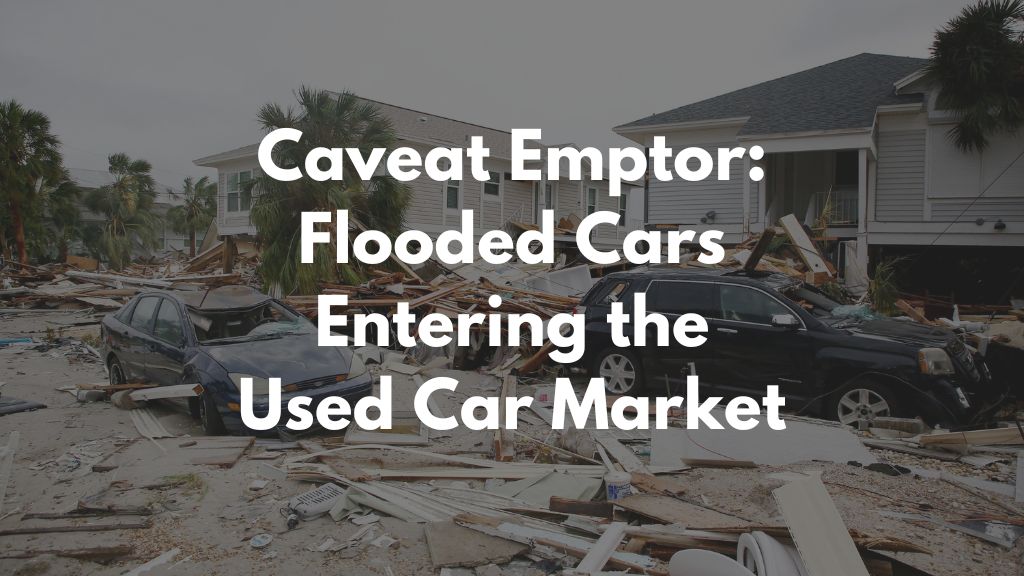Last Updated on July 24, 2023 by Calvyn Ee
Both new and used car prices are beginning to dip gradually in 2023 as fears of a recession and rising interest rates are causing many Americans to stay frugal. Given how low interest rates have, among other reasons, helped with car buying decisions, it will be a while before prices begin to “normalize.” As it stands, prices for used cars are predicted to decline by 20 percent this year.
While this does sound good for those looking to buy a car for cheap, it also has some caveats. One particular issue is that flooded cars caught in Hurricane Ian are now entering the used car market, which isn’t necessarily a good thing.

Flooded cars being sold to consumers isn’t something new. It’s possible to completely refurbish a flooded car by stripping all its defective parts and replacing them with new components before reintroducing them to the market. For the most part, that works nicely – you’re essentially getting a new car from an old one, so to speak.
However, many flooded cars are likely hitting the market in the same state they were in when they were flood-damaged. Experts estimate that 358,000 cars in Florida and other areas that were affected by Hurricane Ian have flood damage – and they may be entering your state to be resold.
The concern is that not all these cars will be refurbished when they go up for sale. Flood damage doesn’t only cause one-time damage to the entirety of the car but can also gradually worsen its condition. Floodwaters can corrode a car’s electronics and mechanical systems, rotting the car from the inside. If left unrepaired, it can significantly jeopardize your safety if you take it out for a drive.
To make things complicated, uninsured cars (or those lacking comprehensive coverage) won’t have their titles updated to reflect that they’re flood-damaged. It’s perfectly legal to sell cars with salvage or junk titles as long as they’re disclosed to the customer. But for those without either title indication, you won’t know that you bought a flooded car until it’s too late.
To add fuel to the fire, some sellers may know this and choose to keep the information from buyers, hoping to make a payday while getting rid of a defective vehicle from their inventory. You’d best not let that happen to you!
Granted, it can be challenging to determine if a used car on sale might be flood-damaged. On the outside, it’ll look like any used car out there. But once you start looking at it more closely, you might be able to spot the warning signs, including:
- A musty smell in the cabin, which sellers will try to hide with copious amounts of air freshener
- Signs of water damage on upholstery
- Damp carpeting with a strong, musty odor
- Faulty components, such as brittle or damaged wiring
- Rust or other forms of water damage on doors or under the dashboard
- Fog or moisture beads in the lights

Be sure to get an independent check performed on a used car you’re interested in buying. Even if the seller provides you with a free vehicle history report or some form of guarantee that a used car is in pretty good shape, you’ll never know if they’re trying to lull you into a false sense of security. Go with your gut and get that independent check scheduled – or better yet, look for a better deal.
Speaking of which, get yourself a vehicle history report from VinFreeCheck instead of relying on what the seller provides you. You’ll never know if the report they give is a false copy they made to sell you a lemon. As such, having a vehicle history report in hand before you go used car shopping is a much-needed insurance policy to keep you safe from potential fraudulent deals and such.
Our vehicle history report contains data taken from various reliable sources, such as the National Motor Vehicle Title Information System (NMVTIS) and the National Insurance Crime Bureau (NICB), to provide you with accurate information about a car’s overall use, including technical specifications, branded titles, odometer readings, and more. It also provides you with flood records if a car was caught in one, thus helping you identify potential red flags in a deal before making a decision.




